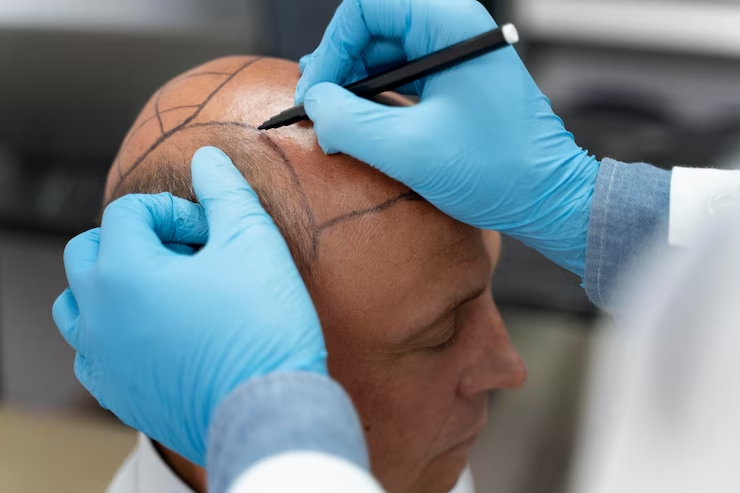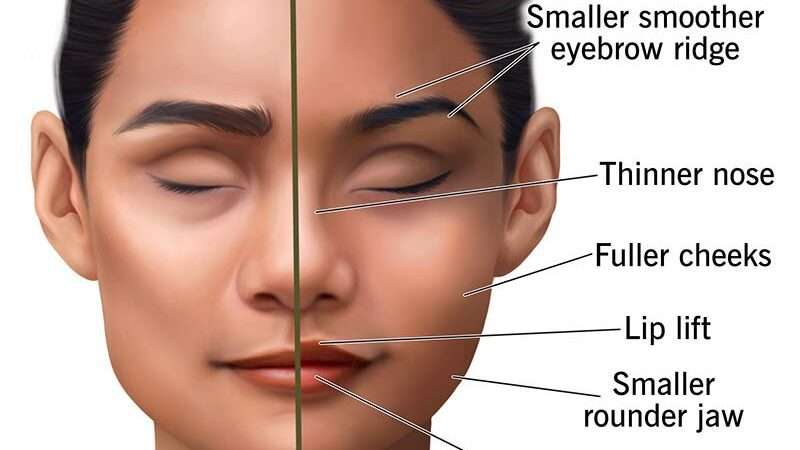Checklist For Recovery And Aftercare Following Hair Transplant Surgery

A hair transplant is a precise, delicate procedure that combines art and science. A good recovery from surgery depends on the days and weeks that follow the procedure. This is the period for healing and rehabilitation, which can significantly impact the procedure’s final results. We’ll offer extensive hair transplant aftercare advice in this blog.
The best hair transplant clinics in India place great importance on the post-hair transplant regimen. They provide assistance, counsel, and constant support throughout the recovery and regrowth process.
What Does The Recovery Timeline For Hair Transplants Look Like?
You still have access to HairSure’s comprehensive post-hair transplant aftercare programme and expert counselling whenever you need it after the hair transplant treatment is over and you return home.
After a hair transplant it may take two to three months until your new hair follicles fully integrate and grow normally. Even while the new hair may initially be unruly and unattractive, eventually, you will regrow the young mane of hair you desire. Patients often achieve full natural hair growth about ten months after their treatment.
However, the outcomes and healing time frames vary from patient to patient. Therefore, it does not necessarily mean that the operation did not work or that your outcomes would not be as effective if your hair regrowth takes longer than ten months. However, as part of our aftercare guarantee, you can phone us or ask for a free checkup if you have any worries.
Following-Up Procedures For 1-4 Days After A Hair Transplant
Healing takes 1-4 days after a hair transplant, and you must strictly adhere to the aftercare instructions provided by your doctors. Saline will need to be sprayed onto your scalp. It lessens scabbing, guards against incision infections, and hastens the healing of the follicles.
After spraying, go to bed and sleep for a while.
Following your hair transplant, you should rest for the first several days. Your body is exhausted after the treatment, so getting rest will hasten your recuperation.
Avoid swimming, using tobacco, consuming alcohol, exercising with heavy impact, and more. Saline sprays frequently applied during this time should keep the scalp well-hydrated. It’s best to avoid combing, but if you must, be careful and do hair while it’s dripping wet to prevent bleeding or discomfort.
During this time, if you have any irritability, pain, or discomfort, don’t hesitate to contact your doctors immediately.
Following-Up Procedures For 5–9 Days After A Hair Transplant
The scalp might well have begun to recover. Now is the time to wash it once more carefully. Most of the tenderness and swelling will subside. Concentrate on carefully removing any scabs or dry skin; refrain from using shampoo vigorously.
Following your hair transplant, please refrain from engaging in high-impact physical activity until all follicles have healed. Sweating from high-impact exercise is harmful to the newly transplanted scalp.
Hair Maintenance 10–14 Days After Hair Transplant
Your scalp will probably look pink and scabbed ten days following the transplant. You don’t need to be concerned about anything as provided, as there is no discomfort or suffering. Your follicles will go latent once more, and your hair growth will fall out, giving you the appearance you had before the hair transplant once the pink skin and scabs have completely healed. Your transplanted follicles will gradually start to produce thick, healthy new hair.
You can begin washing your hair as usual. So what kind of shampoo should you be using right now? Use a soft shampoo that isn’t scratchy or harsh.
How Should You Wash Your Hair Now?
- In a clean basin, add lukewarm water.
- Tea tree shampoo should be added, and the water should be well mixed with it until it is soapy.
- Pour the mixture gently over the transplanted and donor sites using a cup or pitcher.
- Gently massage the grafts down and use a circular motion to cleanse the suture line in the transplanted area gently.
- Make careful to rinse the sides thoroughly with regular, clean water.
- Try patting your hair gently with a fresh towel while letting it air dry naturally.
- From days four through fourteen, adhere to this regimen once daily.
3 To 6 Months After A Hair Transplant
After your appointments, follow up. Allow nature to take its course when the wounds have healed, and your hair will gradually start to grow out normally once more. The checkup appointments at this point will only be made after three and six months. We also advise you to document your progress using pictures. Please make sure you have things scheduled on your calendar at this point to avoid being careless. Everybody’s recovery process is unique. Making appointments now will guarantee that nothing odd regarding your rehabilitation happens.
Ten Months Of Post-Transplant Care
Your hair grows back naturally after you reclaim it. Within two to three months following the operation, natural hair growth begins. Since each follicle starts to produce hair at a different moment, the hair will be spotty and uneven. A trim is typically required to return the hair to its original length after ten months.
Care For 12 Months Following A Hair Transplant
You’ll have one last appointment with your surgeon after a year. During this appointment, they will examine your hairline and growth to evaluate the overall outcome.
In the days and weeks following your hair transplant, remember these things.
Avoid using scarves and tight-fitting hats. This will prevent the growth of your hair and prevent the surgical location from healing properly.
Apply the saline solution as directed before using a mild shampoo. The salt will clean the site, hasten the healing process, and ease any irritation. The saline solution should be kept cold.
Refrain from using hair products. Any hair products, hair dryer, or power shower will harm the hair follicles. They might shift before they recover, which would produce less-than-ideal outcomes.
Heavy lifting should be avoided for four weeks after surgery since it may hinder your recovery. For at least a month after the surgery, refrain from engaging in high-impact physical activity or contact sports to prevent healed follicles or wounds from reopening.
Avoid doing exercises like jogging, cycling, swimming, etc. These actions will make the scar longer.
As your scalp starts to recover, wash your hands frequently. You might also wish to inspect your scalp often to feel for any changes. But to help it heal, try to avoid scratching your scalp as much as possible. If you can’t help it, wash your hands with hot water and antimicrobial gel considerably more frequently than normal to keep them clean.
The post-hair transplant regimen is extremely important for the healing and regrowth process. Ensure you follow the do’s and don’ts’ advice so that you have your beautiful hair back that looks natural.




